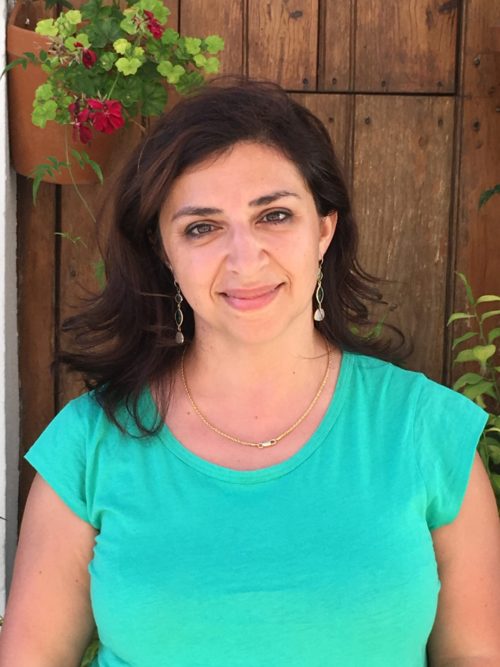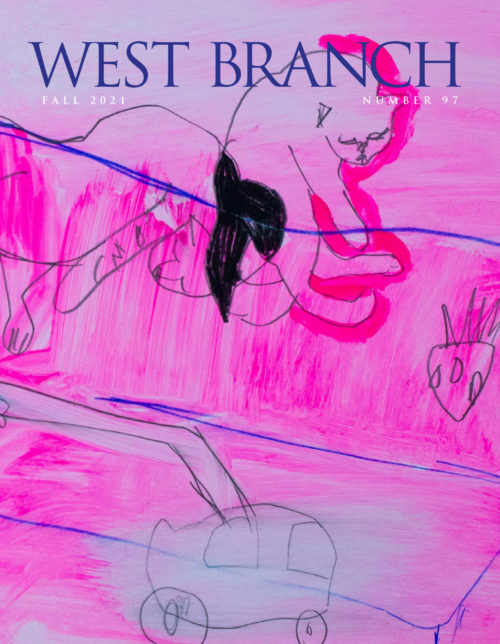The name of my father’s village speaksof the misery of pilgrims unwelcomefor their poverty, a thorn-strewn hillside to keep themat a distance from the houseof god for fear of their disfigurement.All language is littered with corpsesof words, the shrouds we makefor them, the sacred oils we spillto anoint or embalm. Beit a home;ancient breath and secondletter of ancestry. Home of unripe figsor of suffering? Or of the tribewho amassed enough goldand armor to consolidate a story?I need no dictionaryto parse the twin spirits of Anya-that affliction and caregivingare one vector, measured in cubitsor years of prayer occludedfrom the sanctuary. In my father’s childhood,soldiers clamored the rocksto Lazarus’ tomb. He longed forlamb and spiced rice instead of the bonesthe wealthy uncles sentfor broth to stay ten mouths. He dreamtand wandered the olive groves.He went to school in the cityof seventy names. All language is volition-the rising up of a bodythought lifeless, the summoningof a spirit from sepulchral silence. A villagemight be known for derelict light,for the footsteps of supplicants, its deada transom fastening it to memory. Before his ownfather died the family kept a dog, to herd cattleand hold coyotes at the edges of the field.Prince—my father told us the animal’s name,a frail laugh uttered as a third transfusion raised him,again, from the edge. A proper English name,a protest, even our dog, awlaad el kalb,and when the canine sank his teethinto the soldier’s sun-burned shin, my grandfatherprotected his noble beast, told the soldier who had come for bloodto take my grandfather’s life first.All language is legend—we grow into its landscapes.House of Misery for want, for death’searly visits and a dearth of miracles. My father saysthe soldier returned, smirking,with a thick slab of meat that Prince could not resist.Our derivation of meaning—the study we makeof moments-travels the empires engravedin our palms. That a poison robbed a young boyof his dog is both calamity and marginalia.All language is oracular—we are foreverburnishing the wound, readying the chasm.
Beit Anya
Feature Date
- January 26, 2022
Series
Selected By
Share This Poem
Print This Poem
Copyright © 2021 by Lena Khalaf Tuffaha.
All rights reserved.
Reproduced by Poetry Daily with permission.

Lena Khalaf Tuffaha is a poet, essayist, and translator. Her first book of poems, Water & Salt (Red Hen), won the 2018 Washington State Book Award. She is also the author of two poetry chapbooks, Arab in Newsland, winner of the 2016 Two Syvlias Prize and Letter from the Interior (Diode Editions), finalist for the 2020 Jean Pedrick Chapbook Prize. Her work has been published in journals including Kenyon Review Online, the Nation, New England Review, West Branch, and Poets.org Poem-A-Day series. For more about her work, visit www.lenakhalaftuffaha.com

97
Lewisburg, Pennsylvania
Stadler Center for Poetry
Bucknell University
Editor
G. C. Waldrep
Managing Editor
Andrew Ciotola
Editor-at-Large
Shara Lessley
Poetry Daily Depends on You
With your support, we make reading the best contemporary poetry a treasured daily experience. Consider a contribution today.



